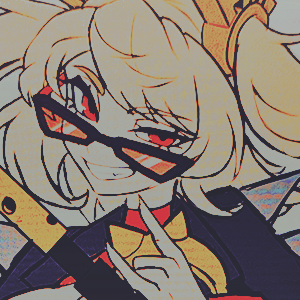937written posts
offlinecurrently
All birds and men are sure to die but songs may live forever
Finished Titus Groan by Mervyn Peake awhile ago. Older and more surrealist than what I’m used to, but a treasure trove of such great descriptive language... Some were really vivid, others were just quirky. Spoilered cause it’s a doozy
It did not look as though such a bony face as his could give normal utterance, but rather that instead of sounds, something more brittle, more ancient, something dryer would emerge, something perhaps more in the nature of a splinter of a fragment of stone. Nevertheless, the harsh lips parted.
—
The eyes were there, small and flat as coins, and the colour of walls themselves, as though during the long hours of professional staring the grey stone had at last reflected itself indelibly once and for all. Yes, the eyes were there, thirty-six of them and the eighteen noses were there, and the lines of the mouths that resembled the harsh cracks that divided the stone slabs, they were there too. Although nothing physical was missing from any one of their eighteen faces yet it would be impossible to perceive the faintest sign of animation and, even if a basinful of their features had been shaken together and if each feature had been picked out at random and stuck upon some dummy-head of wax at any capricious spot or angle, it would have made no difference, for even the most fantastic, the most ingenious of arrangements could not have tempted into life a design whose component parts were dead.
—
Across his face little billows of flesh ran swiftly here and there until, as though they had determined to adhere to the same impulse, they swept up into both oceans of soft cheek, leaving between them a vacuum, a gaping segment like a slice cut from a melon. It was horrible. It was as though nature had lost control. As though the smile, as a concept, as a manifestation of pleasure, had been a mistake, for here on the face of Swelter the idea had been abused.
—
Their faces, identical to the point of indecency, were quite expressionless, as though they were the preliminary lay-outs for faces and were waiting for sentience to be injected.
—
She had, in common with her brother, more the appearance of having been plucked or peeled, than of cleanliness, though clean she was, scrupulously clean, in the sense of a rasher of bacon.
—
One glance at his sister was sufficient to make him realize that to attempt to reason with her would be about as fruitful as trying to christianize a vulture.
—
Although having the advantage of his height, he was no more successful than his Lordship, on account of a superabundance of calcium deposit in his elbow joints.
—
If ever man stalked man, Flay stalked Swelter. It is to be doubted whether, when compared with the angular motions of Mr Flay, any man on earth could claim to stalk at all. He would have to do it with another word.
If Mr Flay stalked, Swelter insinuated. He insinuated himself through space. His body encroached, sleuth-like, from air-volume to air-volume, entering, filling and edging out of each in turn, the slow and vile belly preceding the horribly deliberate and potentially nimble progress of his fallen arches.
—
He concentrated his entire sentience on the killing. He banished all irrelevancies from his canalized mind. His great ham of a face was tickling as though aswarm with insects, but there was no room left in his brain to receive the messages which his nerve endings were presumably delivering—his brain was full. It was full of death.
—
At any other time the chef would have made play with his superior wit. He would have taunted the long, half-crouching figure before him. But now, with blood to be spilt, what did it matter whether or not he incensed his foe? His wit would fall in a more concrete way. It would flash—but in steel. And let his final insult be that Flay could no longer tell an insult from a lamb-chop—unless with his body in two pieces he were still able to differentiate.
—
That he bled profusely could prove little. There was blood in him to revitalize an anaemic army, with enough left over to cool the guns.
—
His eyes had left the youth—and Steerpike was stranded—in one sense only—in that the flood-water of the eyes no longer engulfed him, the stone table as though it were a moon, drawing away the dangerous tide.
—
Her eyes were not red from crying: she had cried so much lately that she had drained herself of salt for a little. They had the look of eyes in which hosts of tears had been fought back and had triumphed.
—
Death and Disappearance were no tid-bits for a jaded palate. They were too huge to be swallowed, and tasted like bile.
|
last edit on Apr 4, 2021 1:15:02 GMT by gimmick |
















